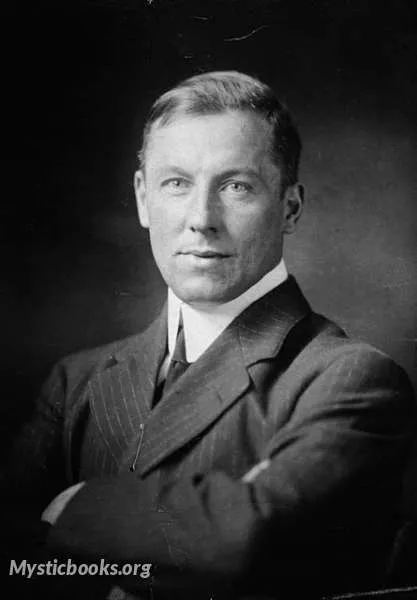
Timeline
Title
Country/Nationality
Robert W. Service
Robert William Service was a British-Canadian poet and writer, often called "the Bard of the Yukon".
Born in Lancashire of Scottish descent, he was a bank clerk by trade, but spent long periods travelling in the Western United States and Canada, often in poverty. When his bank sent him to the Yukon, he was inspired by tales of the Klondike Gold Rush, and wrote two poems "The Shooting of Dan McGrew" and "The Cremation of Sam McGee", which showed remarkable authenticity from an author with no experience of gold-mining, and enjoyed immediate popularity. Encouraged by this, he quickly wrote more poems on the same theme, which were published as Songs of a Sourdough (re-titled The Spell of the Yukon and Other Verses in the U.S.), and achieved a massive sale. When his next collection Ballads of a Cheechako proved equally successful, Service could afford to travel widely and live a leisurely life, basing himself in Paris and the French Riviera.
Partly because of their popularity, and the speed with which he wrote them, his works were dismissed as doggerel by the critics, who tended to say the same of Rudyard Kipling, with whom Service was often compared. This did not worry Service, who was happy to classify his work as “verse, not poetry”.
Service was born in Preston, Lancashire, England, the third of ten children. His father, also Robert Service, was a banker from Kilwinning, Scotland, who had been transferred to England.
When he was five, Service was sent to live in Kilwinning with his three maiden aunts and his paternal grandfather, the town's postmaster. There he is said to have composed his first verse, a grace, on his sixth birthday:
At nine, Service re-joined his parents who had moved to Glasgow. He attended Glasgow's Hillhead High School.
After leaving school, Service joined the Commercial Bank of Scotland which would later become the Royal Bank of Scotland. He was writing at this time and reportedly already "selling his verses". He was also reading poetry: Browning, Keats, Tennyson, and Thackeray.
When he was 21, Service travelled to Vancouver Island, British Columbia, with his Buffalo Bill outfit and dreams of becoming a cowboy.
In 1903, down on his luck, Service was hired by a Canadian Bank of Commerce branch in Victoria, British Columbia, using his Commercial Bank letter of reference. The bank "watched him, gave him a raise, and sent him to Kamloops in the middle of British Columbia. In Victoria he lived over the bank with a hired piano, and dressed for dinner. In Kamloops, horse country, he played polo. In the fall of 1904, the bank sent him to their Whitehorse branch in Yukon. With the expense money he bought himself a raccoon coat."
Throughout this period, Service continued writing and saving his verses: "more than a third of the poems in his first volume had been written before he moved north in 1904."
Whitehorse was a frontier town, less than ten years old. Located on the Yukon River at the White Horse Rapids, it had begun in 1897 as a campground for prospectors on their way to Dawson City to join the Klondike Gold Rush. The railroad that Service rode in on, the White Pass and Yukon Route, had reached Whitehorse only in 1900.
Settling in, "Service dreamed and listened to the stories of the great gold rush." He also "took part in the extremely active Whitehorse social life. As was popular at the time he recited at concerts – things such as 'Casey at the Bat' and 'Gunga Din', but they were getting stale."
One day (Service later wrote), while pondering what to recite at an upcoming church concert he met E. J. "Stroller" White, editor of the Whitehorse Star. White suggested: "Why don’t you write a poem for it? Give us something about our own bit of earth. We sure would appreciate it. There’s a rich paystreak waiting for someone to work. Why don’t you go in and stake it?"
Returning from a walk one Saturday night, Service heard the sounds of revelry from a saloon, and the phrase "A bunch of the boys were whooping it up" popped into his head. Inspired, he ran to the bank to write it down (almost being shot as a burglar), and by the next morning "The Shooting of Dan McGrew" was complete.
Newly wealthy, Service was able to travel to Paris, the French Riviera, Hollywood, and beyond. He returned to Dawson City in 1912 to write his third book of poetry, Rhymes of a Rolling Stone (1912). During that time he became a freemason, being initiated into Yukon Lodge No. 45 in Dawson.
It is unclear what happened between Service and Constance MacLean as no known letters between them exist after Service's departure for Dawson City. In 1912 she "married Leroy Grant, a surveyor and railroad engineer based in Prince Rupert."
Service left Dawson City for good in 1912. From 1912 to 1913 he was a correspondent for the Toronto Star during the Balkan Wars.
In 1913, Service moved to Paris, remaining there for the next 15 years. He settled in the Latin Quarter, posing as a painter. In June 1913, he married Parisienne Germaine Bourgoin, daughter of a distillery owner, and they purchased a summer home at Lancieux, Côtes-d'Armor, in the Brittany region of France. Thirteen years younger than her husband, Germaine Service survived him by 31 years, dying aged 102 on December 26, 1989 in Monte Carlo, Monaco.
Books by Robert W. Service
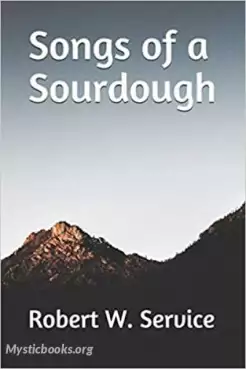
Songs of a Sourdough
These poems are known for their rugged and romantic portrayal of life in the wilderness, and for their depiction of the harsh and unforgiving environment of the Klondike.
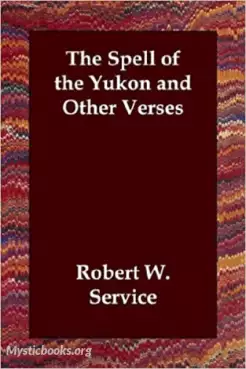
The Spell of the Yukon and Other Verses
Known as the Bard of the Yukon and as a people's poet, Robert Service immortalized his experience with the Yukon and its gold rush and this collection of poetry. While some poems are anecdotal and amusing, others capture the raw brilliance that front...
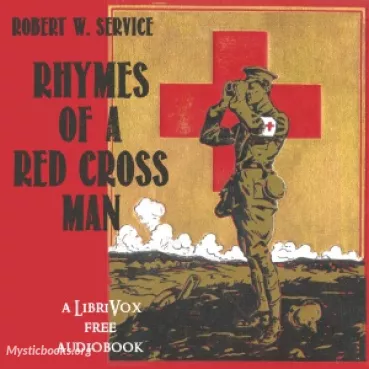
Rhymes of a Red Cross Man
In the heart of World War I's devastation, amidst the cacophony of battle and the agonizing cries of the wounded, a silent hero emerges, his compassion and courage shining like a beacon in the darkness. Robert W. Service's poignant collection of poem...
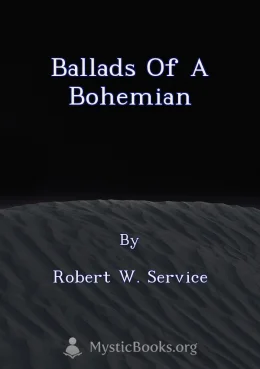
Ballads of a Bohemian
Ballads of a Bohemian is a collection of poems tied together by the narration of the "author" Stephen Poore. The poems speak of bohemian life in Paris before the war, his experiences during World War I and its aftermath. (Summary by Kristin Hughes)
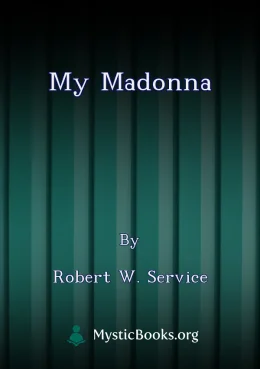
My Madonna
LibriVox volunteers bring you 21 different recordings of My Madonna by Robert W. Service. This was the weekly poetry project for the week of August 12th, 2007.
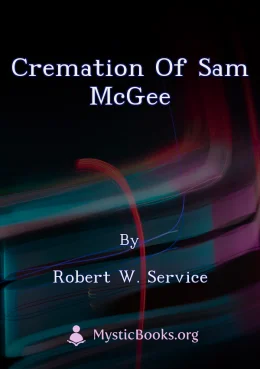
Cremation of Sam McGee
LibriVox volunteers bring you 7 different recordings of The Cremation of Sam McGee by Robert W. Service.

Selections from Ballads of a Cheechako
These twelve poems are taken from Ballads of a Cheechako which was Robert W. Service's third book of Yukon poems, published in 1909. The word Cheechako, from Chinook Jargon, originated in the United States (Alaska) and Canada (Yukon) and was imported...
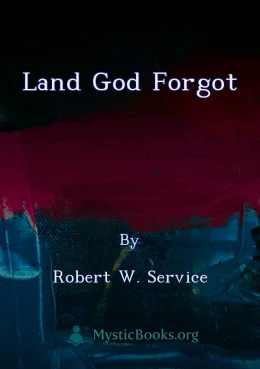
Land God Forgot
The Land God Forgot is a collection of poems by Robert W. Service, known for his evocative portrayal of the Canadian wilderness, particularly the Yukon Territory. These poems depict the harsh realities of life in the Klondike during the Gold Rush er...
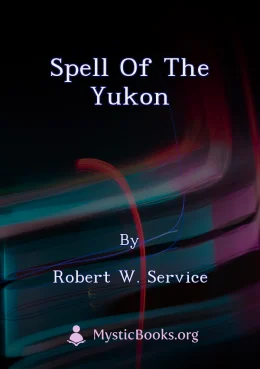
Spell of the Yukon
The Spell of the Yukon is a collection of poems by Robert W. Service that capture the spirit of the Klondike Gold Rush. The poems are full of vivid imagery and adventure, and they celebrate the resilience of the human spirit in the face of adversity....
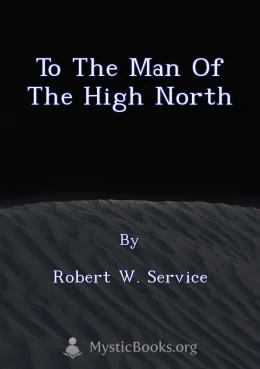
To the Man of the High North
A collection of poems by Robert W. Service, "To the Man of the High North" captures the spirit of the Yukon gold rush and the rugged beauty of the Canadian wilderness. Service's vivid imagery and rhythmic language paint a vivid picture of life in the...
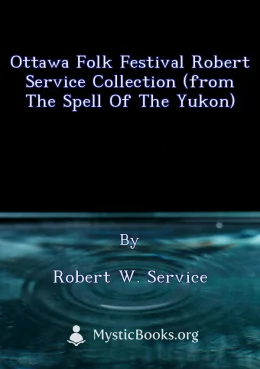
Ottawa Folk Festival Robert Service Collection (from The Spell of the Yukon)
This book, a collection of readings from Robert Service's iconic poem "The Spell of the Yukon," was recorded live at the 2010 Ottawa Folk Festival. It captures the spirit of the event with its enthusiastic audience and the powerful words of Service,...
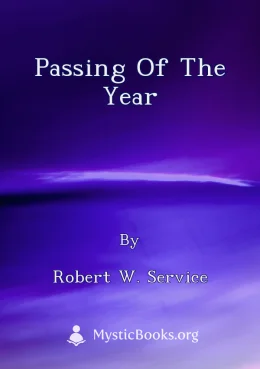
Passing of the Year
The Passing of the Year is a collection of poems by Robert W. Service, first published in 1912. Service was a popular poet of the early 20th century, known for his vivid and often humorous depictions of life in the Yukon Territory during the Klondike...